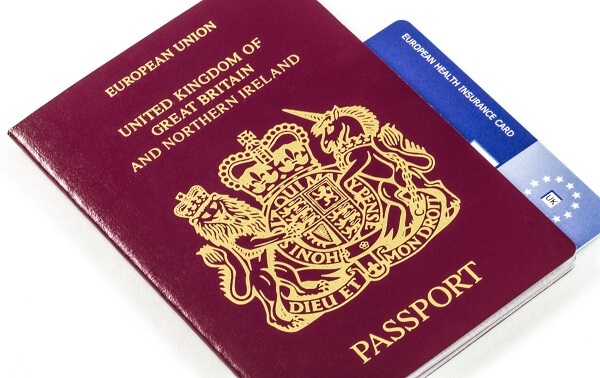Visas, EHIC & Passport Information
From 1st January 2021 rules around travel to Europe have changed, visit the Government website for up to date information on passports, EHIC, healthcare and more. We’ll update this page with more information as and when the Government release it.
When planning any trip it is extremely important that you check whether you need a visa to enter the country. You can do this online, with your travel agent or with the Consulate or Embassy of the country you are planning to visit. In some instances you can even apply at the airport when you arrive, but this usually proves more difficult.
You will normally have to fill out a form, providing information about yourself, your trip and your background, plus a passport sized photo. You then send this off with your passport. Make sure you do this in plenty of time, as it could take several weeks to get your visa through and your passport back (always send recorded delivery, just in case). Some visas are easy to obtain and others are more difficult. Always ask for help from the Embassy or a travel professional if you are unsure.

A visa is an official document or stamp proving that you have been granted permission to enter the country. A Visa will usually determine;
- How long you are permitted to stay in the country
- Whether you are permitted to work or study
- Where you are allowed to travel
Plus much more
If you are planning to travel, work, get married or study abroad you must make sure you have the correct type of visa.
If you do not have the correct paper work you will not be allowed to enter the country, which will make your trip short and expensive. It is your job to make sure you have all the correct paper work in place before you arrive.
Some countries are constantly changing their rules and regulations regarding visas and border control. View the latest Foreign, Commonwealth & Development Office (FCDO) travel advice for specific countries here. Remember that a visa does not always guarantee you entry into a country.
EHIC
If you’re travelling within the European Union, make sure you have a European Health Insurance Card or EHIC. The EHIC replaced the old E111 form in 2006. The EHIC is free and you can apply for one online here.
If you need medical treatment whilst abroad, the EHIC should entitle you to free or discounted health care in European countries including Switzerland.
If you need health care whilst travelling, make sure you visit a state hospital and take your EHIC and Passport as proof of EU citizenship. In some European countries, such as Spain, you may be directed to a private clinic instead of a state facility; however the EHIC is only recognised by state hospitals.
Remember that the EHIC is not a substitution for travel insurance – it will not cover you for repatriation or private treatment. You should always make sure you invest in quality travel insurance before you depart for your holiday.
If you already have an EHIC make sure it is still current, as they expire every 5 years.
For further information and to apply for an EHIC, please click here.
Passports
Most travellers are familiar with passports, but for anyone who is unsure or has a query, we have collated our top tips and advice concerning passports; whether that is renewing, travelling or reporting one stolen.
• A passport is an official document which allows you to travel to other countries.
• You can renew your passport 9 months before the expiry date onwards, if you renew early the time will be added to the next expiry date.
• To renew an adult passport usually costs around £70 – £80.
• A passport application should normally take 4 weeks to process.
• Even when visiting EU countries you should take a passport. It may not be checked, but some authorities ask for it as proof of ID.
• If you’re flying, most airlines now want to see your passport as proof of ID even if you’re using a domestic flight.
• Check that your passport will not expire during your trip.
• Remember that some countries will only accept a passport that is valid for at least another 6 months.
• Take a photocopy of your passport, visas and any other important documents. Make a note of passport numbers, dates and where they were issued. Also take a note of your travel insurance policy number.
• When you reach your destination, keep your passport and travel documents in a safe place (the hotel safe if possible), don’t carry them around with you if you can avoid it.
• Some countries ask you to carry your passport as a form of identity card, check if a photocopy would suffice, if you do need to carry the original make sure you leave a photocopy in the hotel safe.
• Should your passport be stolen, your travel insurer will offer advice on how and where you can get a replacement passport. You should report the theft to local police and obtain a police report, then go to your local embassy who should be able to cancel your passport and issue you with emergency paperwork, there may be a fee and background checks involved in this.
*Please note, Holidaysafe's online prices automatically include a 15% discount against our Customer Service Centre prices. This code entitles you to an additional 5% off your policy, and is a discount from the base price, not including the additional cost of optional extensions or any additional medical premium.


